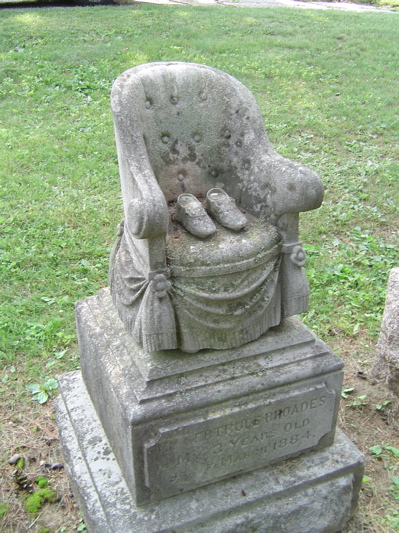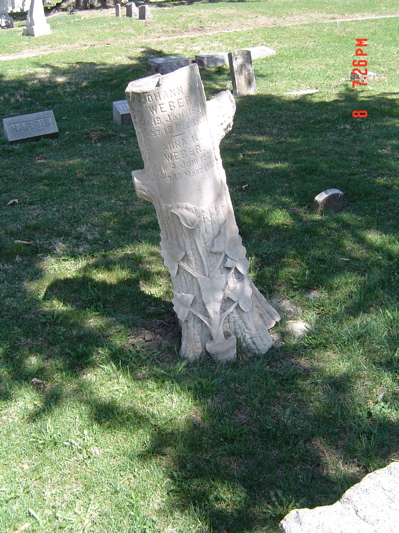Encyclopedia Dubuque
"Encyclopedia Dubuque is the online authority for all things Dubuque, written by the people who know the city best.”
Marshall Cohen—researcher and producer, CNN
Affiliated with the Local History Network of the State Historical Society of Iowa, and the Iowa Museum Association.
GRAVESTONE ART
GRAVESTONE ART. Between 1840 and 1905 symbols used on grave markers were a common language to visitors in cemeteries. The symbols were designed to show ideas about the character and attitudes of the deceased. This language is gradually being lost. The symbols described below are only a few of the many once used.
Anchor--a Christian symbol of faith and hope. The idea that the deceased is anchored safely in God’s harbor.
Arrow--Christian symbol of the sure salvation of the soul
Bible--indicates the deep Christian belief of the person
Butterfly--short life
Chain--a full chain represents a family, a broken chain shows the loss of a person
Clock--time has run out for this person
Column--with a capital showed that the person had lived to the expected age of 70, a shorter column indicated that the person had died earlier
Cross--promise of salvation
Crown--victory of eternal life over death
Dove--represents the Holy Spirit or a messenger of God
Gates--usually shown open meaning the passage from life to death
Hand--if it reaches downward it is the hand of God
Harp--symbol of joy
Hour Glass--indication that time has run out for the dead
Keys--spiritual power on earth and in heaven
Lamb--ordinarily used for the graves of children and means innocence
Lamp--the light of eternal life
Leaves--Oak (strength of faith), ivy (steadfastness of faith), grape (maturity in years), laurel (victory of life over death)
Lily--symbol of purity
Lion--courage
Moon or Star or Sun--a heavenly body meaning that the dead has gone to heaven
Oak--strength
Poppy--eternal sleep
Rose--an open flower means an adult woman, rose buds are used on the graves of infants and small children, partially open buds would refer to young girls
Scales--represent judgment
Scroll--a record of the good and bad deeds of the dead
Torch--upside down meant death, most were shown lighted showing life after death
Tree--symbol of immortality, branches cut off often indicated the birth of girls who could not carry on the family name
Trumpet--symbol of judgment and resurrection
Urn--symbol of death
Vine--sign of spiritual life provided through Jesus
Weeping Willow--sign of sadness
Wheel--symbol of old age, often shown broken representing death



